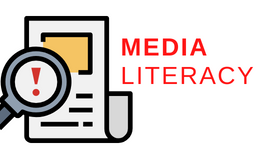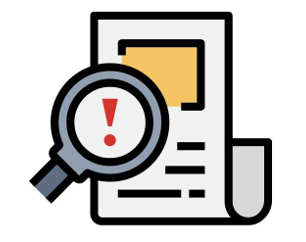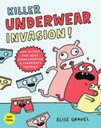Media Literacy: An Essential Skill
Media literacy is an ess ential skill set for students year-round, and especially pertinent during election season. School librarians are the only certified information professionals in K-12 education and our digital native students are not immune to digital naïveté. In a 2015-16 study of more than 7,500 middle, high school, and college students, the Stanford History Education Group found that students in all age groups were “easily duped” and struggled to evaluate the credibility of information on the Internet. To prepare students for civic life, teaching media literacy skills is critical. School librarians are critical.
ential skill set for students year-round, and especially pertinent during election season. School librarians are the only certified information professionals in K-12 education and our digital native students are not immune to digital naïveté. In a 2015-16 study of more than 7,500 middle, high school, and college students, the Stanford History Education Group found that students in all age groups were “easily duped” and struggled to evaluate the credibility of information on the Internet. To prepare students for civic life, teaching media literacy skills is critical. School librarians are critical.
The instructional resources for teaching media literacy skills are growing every year and the Colorado Department of Education has created the CDE Media Literacy Resource Bank to make it easy to find free instructional tools, educator professional development, and family resources. Below are just a few examples of resources for teaching students how to critically evaluate media messages.
CDE Media Literacy Resource Bank
News Literacy Project
- Resource Library of lesson plans for grades 4-12
- Checkology: free e-learning platform with lessons on news media bias, misinformation, conspiratorial thinking, and more
- The SiftⓇ: weekly newsletter for educators that explores timely examples of misinformation and discusses social media trends and issues; includes links, discussion prompts, and activities for use in the classroom
- Infographics and Posters: free downloadable resources, including “Three Types of Election Rumors to Avoid” in English and Spanish
Common Sense Media
- News and Media Literacy Resource Center: Common Sense’s free news and media literacy lessons, videos, and classroom activities for grades K-12
- Links to other recommended resources for teaching media literacy
NewseumEd
- Activities, lessons, case studies and guest blog posts on fighting fake news and developing students’ media literacy skills for grades 6-12
Colorado Media Project
Where do Coloradans find their local news and community information, and what do we know about these sources? The Colorado News Mapping Project tracks credentialed sources of local journalism — including newspapers, TV and radio stations, and digital news sites — and other sources that share or produce civic information — including community groups, organizational pages, and individuals.
Free & On-Demand Professional Learning About Media Literacy
Informed or Influenced? Media and News Literacy Skills for Election Season and Beyond
Join News Literacy Project experts and news literacy educators to learn best practices for teaching about bias and how you can help students identify news and information that is presented in a fair and accurate way. Click here to learn more and view a recording of the live session.
Share or Beware: Help Students Fight Misinformation One Click at a Time
Support your students with learning online reasoning skills, avoiding the misinformation pitfalls of social media, and developing healthy skepticism without turning into cynics. Presenters will share ideas, teaching tips, and ready-to-use resources for helping students find reliable sources. Click here to learn more and view a recording of the live session.
Teacher Librarian Toolbox for Teaching Media Literacy
 Book: Killer Underwear Invasion! How to Spot Fake News, Disinformation and Lies by Elise Gravel
Book: Killer Underwear Invasion! How to Spot Fake News, Disinformation and Lies by Elise Gravel
With quirky illustrations and a humorous tone, Elise Gravel brings her kid-accessible wit to the increasingly important subject of media literacy and equips younger readers with the skills needed to interact with global news. ~From the Publisher
Podcast: Is That a Fact?
The News Literacy Project podcast series informs listeners about news literacy issues that affect their lives through informative conversations with experts working to combat misinformation.
Video Series: Crash Course
A 12-part video series for high school and college students that teaches the history and psychology of media and skills for becoming more media savvy.
Infographic: Cultivating an Equitable School Library to Nurture Critical Curators
Infographic created by AASL to guide conversations with administrators and other educators about the importance of developing students’ media literacy and other curation skills.
Idea Sharing
How are you teaching media literacy at your school? Other thoughts or questions? Share your ideas via our School Library Hotline listserv.
- The K-12 Library Connection: Media Literacy - November 1, 2022
- The K-12 Library Connection: Building Inclusive Collections - October 11, 2022
- The K-12 Library Connection: Protecting Students’ Right to Read - September 20, 2022